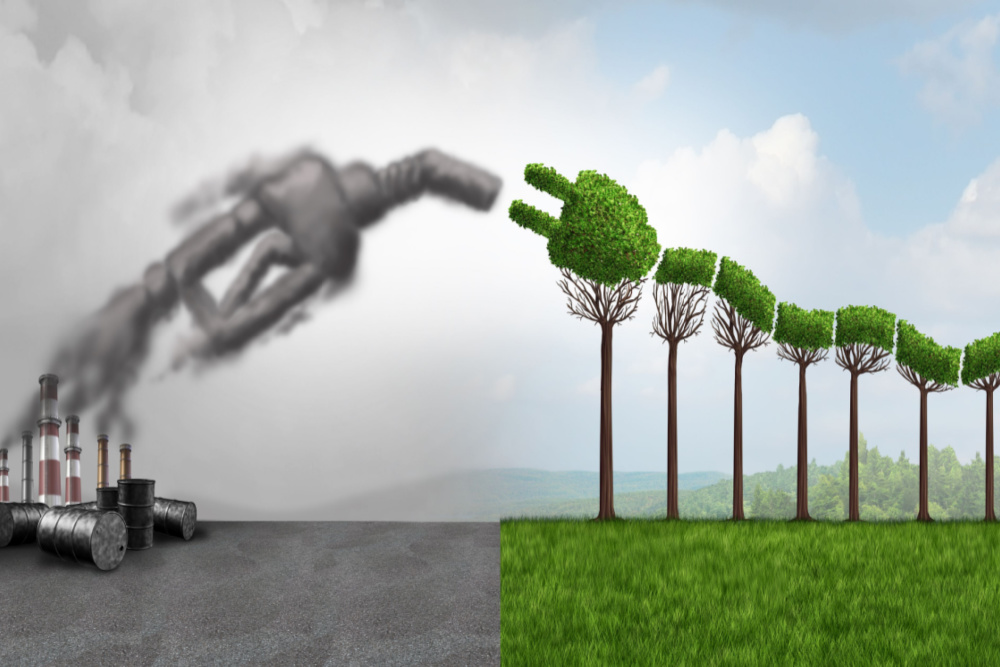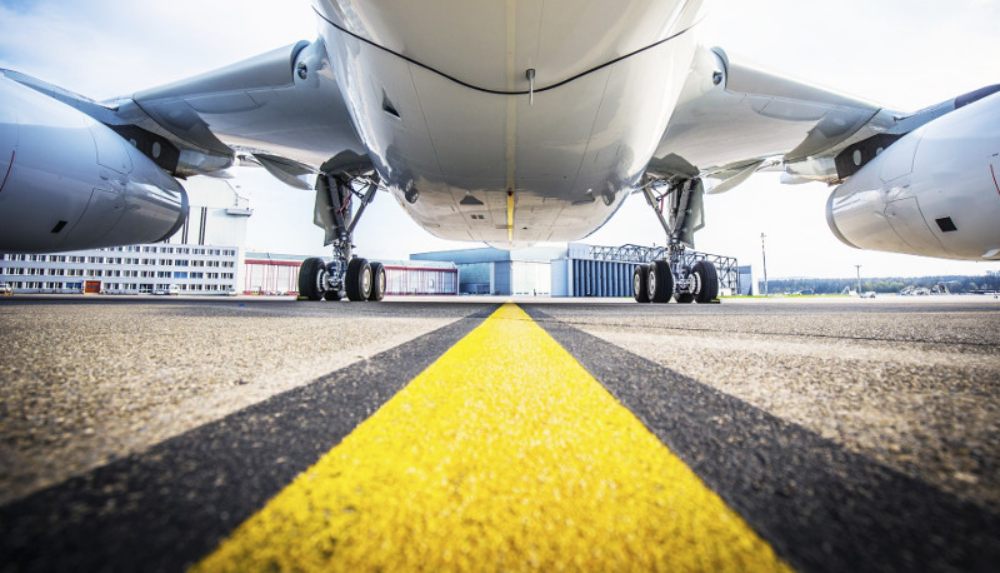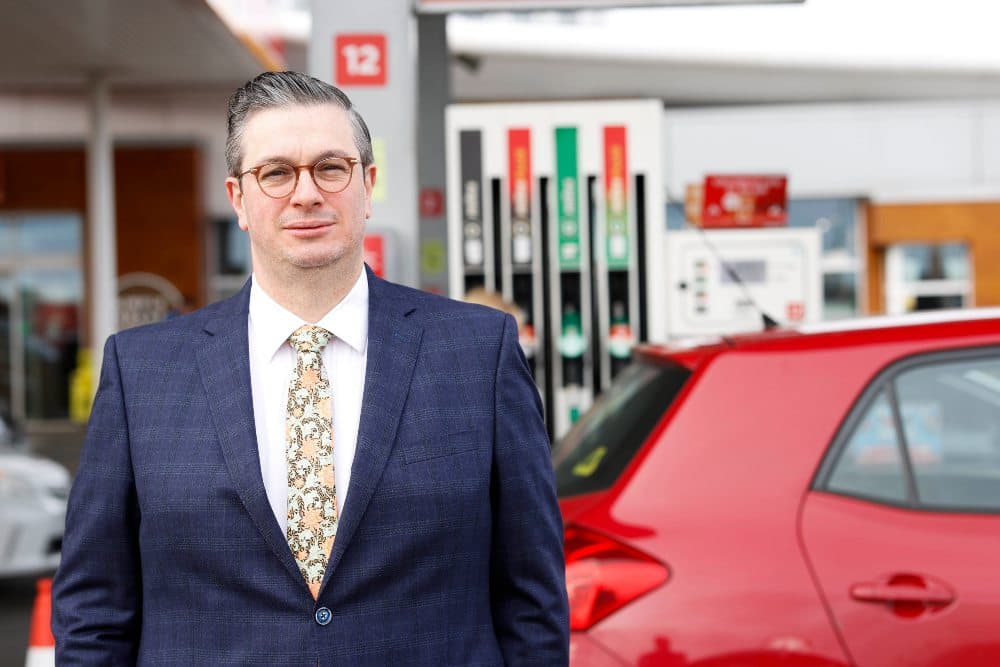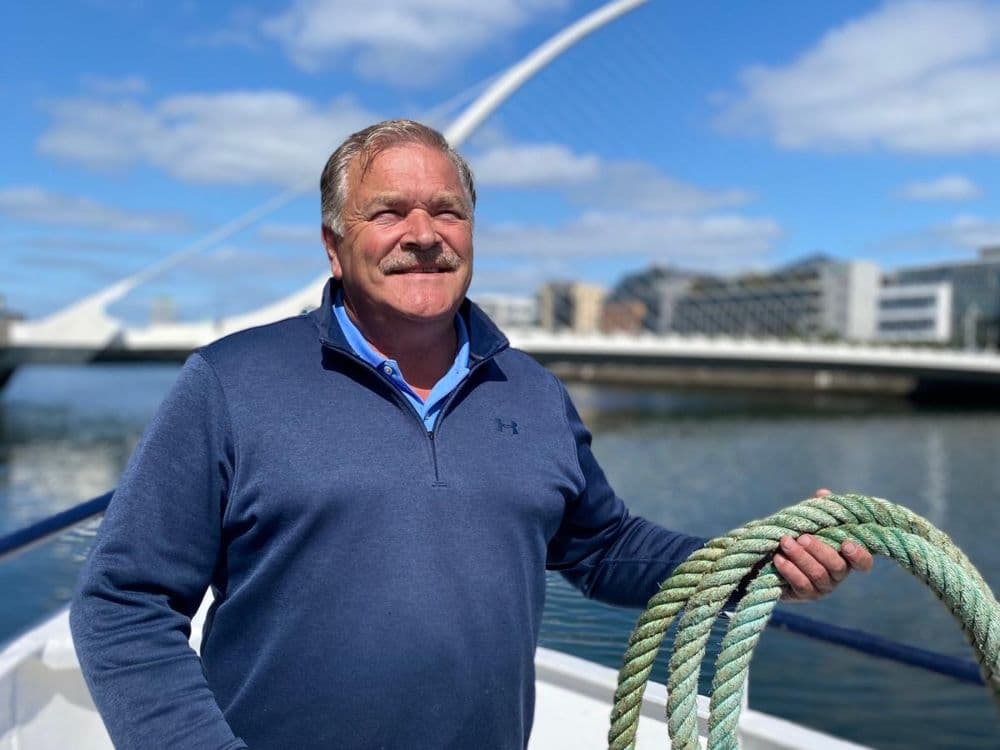Podcast Ep 253: Interview with Kevin McPartlan, CEO of Fuels for Ireland, on Ireland’s energy transition and how to balance climate action with practical solutions such as alternative fuels like HVO.
We talk to Kevin McPartlan, CEO of Fuels for Ireland, about how the fuel sector is actually a lynchpin of Ireland’s transition to green energy, arguing in favour of new fuels like hydrotreated vegetable oil (HVO) and low-carbon liquid fuels.
The sector employs more than 66,000 people and supplies more than half of Ireland’s current energy consumption. McPartlan envisages a cleaner energy future, is supportive of electric vehicles and has a vision for how forecourts can continue to serve as vibrant community hubs.
“We went through a renewal about five years ago and recognised that petroleum isn’t the way of the future. Nobody thinks they’re going to be running a business based on the sale of kerosene, petrol, and diesel in the coming years”
McPartlan has led Fuels for Ireland through its transition from the Irish Petroleum Industry Association, initially joining in 2018. His leadership reflects a strong commitment to achieving carbon neutrality by 2050, a crucial goal for Ireland’s energy future.
With a background in law and extensive experience in communications and public affairs, Kevin has worked with NGOs, start-ups, multinationals, and political bodies.
Reason blends with radical
We began our interview on the subject of what Fuels for Ireland represents.
“Fuels for Ireland, at its most basic level, is an industry association for companies that import, refine, wholesale, and market liquid fuels to the public. It was formerly called the Irish Petroleum Industry Association. We went through a renewal about five years ago and recognised that petroleum isn’t the way of the future. Nobody thinks they’re going to be running a business based on the sale of kerosene, petrol, and diesel in the coming years. So we made that change, which some might call greenwashing, but I think it’s a reflection of reality – we recognize that fossil fuels can’t be the basis of our future business plans.
“When we talk about energy transition, it’s important to think about where we are now. A transition is a journey from point A to point B. The reality is that today, in 2025, half of Ireland’s total energy is coming from petroleum products. We have the highest dependence in the EU. Yes, we need to move to a zero-carbon future, but we can’t stop providing the fuels we currently supply overnight.
“I often say that expecting to continue selling petrol, diesel, and kerosene in the volumes we’re selling now is absurd, but it’s equally absurd to say we will stop selling them immediately. If we did that, the first deaths would occur before morning – Ireland would wake up to chaos because ambulances, fire engines, and lifeboats wouldn’t be running. It’s an extreme example, but it illustrates our current dependence and why we need a measured transition away from it.”
Practical approaches to energy transition
McPartlan says he is advocating for a gradual transition. “Our last Minister for Environment used to talk with great pride about having the most ambitious climate action targets in the world. My comment was always that this just means no other government thinks they’re realistic. Ambition isn’t the problem – delivery is.
“We can put 20% biofuel into the blend delivered to these homes with just six months’ notice. This would reduce emissions by almost 20% – having the same impact as installing 160,000 heat pumps”
“The rural-urban divide in Ireland can sometimes be exploited. If you live in Ranelagh, as I do, with the Luas 200 meters from my front door, along with bus lanes, cycle lanes, taxis, and car-sharing schemes, I have many more options than my family in North Cork, where the rural Link bus might come through twice a week.
“Despite the necessity of decarbonisation – and it is absolutely necessary – people aren’t going to stop living the way they have or accept less convenience. So instead of saying people should do less, we should focus on how to reduce carbon emissions within existing lifestyles.
“For us, that means increased use of advanced synthetic and biofuels. It’s also worth noting that in Ireland, a greater proportion of forecourts offer EV charging than in any other EU state. We’re also exploring what hydrogen might offer.”
Biofuels and immediate solutions
I asked McPartlan to explain how low-carbon liquid fuels or HVO could provide an easier transition than moving straight to electricity or heat pumps and how this could be executed painlessly for homes and businesses.
“Yes, we need modal shift to public transport, yes, we need electric vehicles powered by sustainable electricity, and we also need solutions for those who will still rely on conventional vehicles”
“Sometimes Ireland has had a very ideological approach to addressing climate challenges. For example, deciding to ban oil boilers from homes doesn’t make sense. It shouldn’t be about the technology but about the impact.
“For the 700,000 homes in Ireland relying on oil heating, we’ve suggested a renewable heating obligation scheme. We can put 20% biofuel into the blend delivered to these homes with just six months’ notice. This would reduce emissions by almost 20% – having the same impact as installing 160,000 heat pumps, but with no capital expenditure.
“Consider that the average retrofit currently costs around €60,000 to €70,000. Instead of that massive investment, we can achieve significant emission reductions immediately. Heat pumps are excellent technology for new homes or major renovations, but for a 100-year-old home with less-than-perfect energy efficiency, making it heat pump ready is time-consuming, expensive, and disruptive. In these cases, we should consider how to use existing technology while still reducing emissions.
Electric vehicles and biofuel blending
Kevin believes that while electric vehicles (EVs) are important, relying solely on them may hinder Ireland’s progress towards its carbon targets. He highlights the benefits of liquified fossil fuels like hydrotreated vegetable oil, which have shown significant carbon emission reductions
“Electric vehicles will be a major, probably the major, decarbonising impact on transport in Ireland, particularly for private cars. I run the National Fuel Industry Association, and I drive an electric vehicle myself because it makes sense for me. I understand range anxiety – I regularly drive between Dublin and North Cork and have that conversation with myself often. But the experience is pretty good and reliable. I add about 15 minutes to my journey for charging.
“However, not everyone is in a position to make that choice for financial or other reasons. For those who will continue using conventional vehicles, we need to reduce their emissions by increasing the amount of advanced synthetic and biofuels in the mix.
“About 18 months ago, we switched the standard petrol blend in Ireland from E5 (5% ethanol) to E10 (10% ethanol). That whole transition happened within two weeks, and we reduced transport emissions by more than all the EVs on the road at that time combined. We can do this again. There are efforts within the Department of Transport to increase the level of biofuel in diesel from the current 7% to 10%. This would have a massive impact on emissions from transport.
“So yes, we need modal shift to public transport, yes, we need electric vehicles powered by sustainable electricity, and we also need solutions for those who will still rely on conventional vehicles.”
Evolution of forecourts
But as we move toward more electric vehicles, I asked McPartlan for his thoughts on the future of forecourts. Many are already becoming destinations for food and other services rather than just refueling stops.
“I’ve heard anecdotally that the most valuable square meter of real estate in Ireland is the coffee machine in a busy garage”
“Ireland is a world leader in what marketing people now call ‘roadside retail.’ Of the 10 shortlisted global forecourts for the Forecourt of the Year award, six were in Ireland. People come from all over the world to see how we do this.
“If I think back 40 years, the garage at the top of the main street in my grandparents’ town had two pumps and a service area – that was the forecourt. Now forecourts are multi-channel retail venues offering barista coffee, Mexican food, ice cream parlors, and fast-food options.
“In rural Ireland, forecourts have taken on even more importance. As post offices, shops, and other services have disappeared from small towns, the forecourt often now houses the post office, banking services, dry cleaning drop-off, school lunch options, and even plated meals popular with older people living alone.
“This relationship is changing again with EV charging. People won’t be stopping for just five minutes to refuel; they’ll stay for 20-40 minutes. This makes the coffee offering more important than ever – I’ve heard anecdotally that the most valuable square meter of real estate in Ireland is the coffee machine in a busy garage.
“Forecourts will need rest areas, places to work, and even meeting rooms. Some are already offering meeting spaces in the middle of Ireland where people traveling from different directions can converge.”
Planning challenges for future forecourts
Despite Ireland’s lead on ‘roadside retail’, I put it to McPartlan that not all existing petrol station forecourts are able to accommodate the explosion in services due to their location and size.
“That’s one of my big issues right now – planning legislation. Currently, retail planning guidelines limit the retail space in a forecourt to 100 square meters. This needs to change and increase.
“We envision service stations with banks of 50 ultra-fast EV chargers where people leave their cars for half an hour while shopping or dining. We’re seeing movement in this direction – Apple Green and M&S have collaborated so you can buy dinner ingredients at certain forecourts. Maxol has a deal with Dunnes Stores, and Circle K is moving into non-fuel retail with convenience stores in Dublin not connected to garages.”
McPartlan concludes: “The transition is happening, but current retail planning guidelines make it difficult to have a broader retail offering. That’s something we’re working to change.”
-
Bank of Ireland is welcoming new customers every day – funding investments, working capital and expansions across multiple sectors. To learn more, click here
-
For support in challenging times, click here
-
Listen to the ThinkBusiness Podcast for business insights and inspiration. All episodes are here. You can also listen to the Podcast on:
-
Spotify
-
SoundCloud
-
Apple






